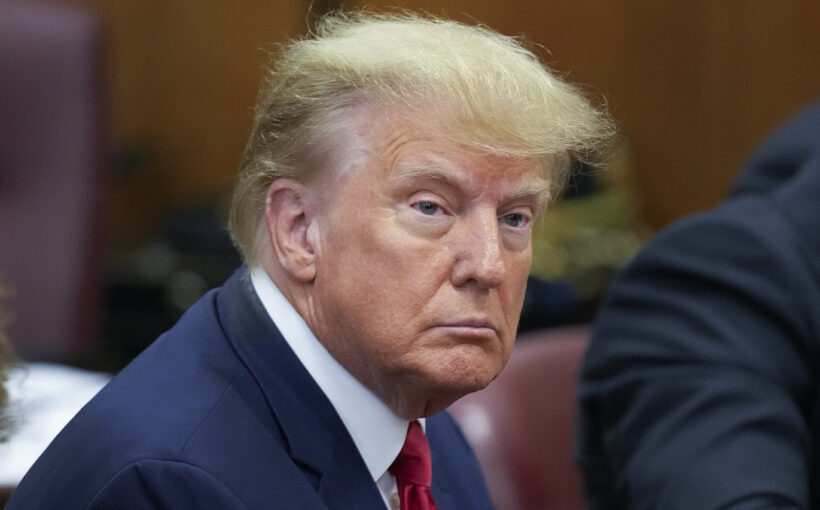A federal judge late Friday dismissed Donald Trump’s $475 million defamation lawsuit against CNN, in which the former president argued that the cable network’s statements about his false 2020 election fraud claims likened him to Adolf Hitler.
In the lawsuit, Trump’s team argued that CNN writers and television anchors’ use of the phrase the “Big Lie,” in five specific incidents, incited “readers and viewers to hate, contempt, distrust, ridicule, and even fear” him. But U.S. District Judge Raag Singhal, who Trump appointed in 2019, reasoned that because all of CNN’s statements were opinion, Trump could not legally sue the network for defamation.
“Being ‘Hitler-like’ is not a verifiable statement of fact that would support a defamation claim,” Singhal wrote in his dismissal. “CNN’s statements while repugnant, were not, as a matter of law, defamatory.”
The phrase “big lie” historically has referred to a propaganda technique so powerful that people who believe in its message could not believe that someone could have distorted it. It has popular origins in German from Adolf Hitler in his memoir, Mein Kampf.
Singhal dismissed his lawsuit with prejudice, meaning Trump cannot file another lawsuit under the same reasoning.
“The Court finds Nazi references in the political discourse (made by whichever ‘side’) to be odious and repugnant. But bad rhetoric is not defamation when it does not include false statements of fact.” Singhal wrote. “CNN’s use of the phrase ‘the Big Lie’ in connection with Trump’s election challenges does not give rise to a plausible inference that Trump advocates the persecution and genocide of Jews or any other group of people. No reasonable viewer could (or should) plausibly make that reference.”
CNN declined to comment. Trump’s campaign did not immediately respond for requests for comment.
Trump has targeted the media since he made his entrance to the national political arena, often calling stories and organizations he does not like “fake news.” He filed this lawsuit last October arguing that CNN’s alleged libel would ramp up if he ran for president in 2024. Trump has also filed several lawsuits against other news organizations, including The New York Times and The Washington Post, for coverage he perceived as critical.


